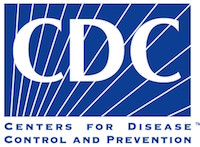
“We’re trying to prevent any additional cases and deaths,” says Dr. Dana Meaney-Delman who currently leads the agency’s efforts at establishing a cause for the disease now affecting over 450 people in 33 states across the country. “We’re absolutely concerned about THC, but there’s a large number in our data that are reporting (use of) both nicotine and THC. There is no one product, device, or substance that we can point to that is common among all these different patients.”
The number of variables in the CDC’s studies is astronomical and the quality of the evidence is further complicated by the fact that THC and marijuana remain illegal according to federal law and have mixed legal standing at the state level. When weighing the evidence in such studies, one also has to weigh the patient’s willingness to admit to the use of a substance that may be illegal, especially if that patient is a minor who also fears familial punishment. According to Dr. Meaney-Delman, her data thus far indicates that of the 64 cases she’s reviewed, 60 percent claim to have used both THC and nicotine while a full 20 percent deny any THC usage whatsoever and have asserted their illnesses to be solely due to nicotine vape usage.
The CDC is working with local, state, and other federal agencies to acquire and analyze hundreds of samples of materials that may have played a role in the illnesses. Acting FDA Commissioner Ned Sharpless, M.D. says that his agency is “leaving no stone unturned” in its investigation.
One of those stones appeared to be a promising lead, as the agency named a compound known as vitamin E acetate as a possible cause. Used as an agent in illicit THC vape cartridges, vitamin E acetate is an oil and does not break down the same way as substances normally used in vaping. However, according to Dr. Sharpless, vitamin E acetate may not be the silver bullet answer. “The FDA is analyzing these [samples] for a broad range of chemicals but no one substance, including vitamin E acetate, has been identified in all of the samples tested.”
For its part, the American Vaping Association is encouraging people to heed to FDA’s initial guidance. “We agree with the FDA,” says AVA president Gregory Conley. “If you don’t want to die or end up in a hospital, stop vaping illegal THC oils immediately.”
